Photographs: Stringer/Reuters Malini Bhupta and Vishal Chhabria in Mumbai
Everybody loves a good conspiracy theory, especially equity markets. The rupee’s sharp fall in recent times has sparked many. One is that the currency typically depreciates in periods preceding a general election. In fact, data from 1984 shows the rupee has tended to weaken in periods preceding elections, which adds fuel to the fire.
“To fight elections, they require money. The theory is if overseas money is brought into the economy before an election, the depreciated currency benefits the person who brings it in,” says Deven Choksey, managing director, KR Choksey Securities. He believes the current depreciation has, instead, a lot to do with the global and India macro situation.
...
Are rupee changes linked to elections?
Image: A man watches television inside his currency exchange shop in New Delhi.Photographs: Mansi Thapliyal/Reuters
While the theory of the political class weakening the rupee deliberately might have been possible before 1991, when exchange rates were managed by the government, economists believe such engineering is difficult in current times.
The buzz surrounding the theory has been strong because the rupee has depreciated in six out of seven occasions prior to elections since 1989 – the only time it did the reverse was in 2004, when the BJP-led NDA coalition was in power.
However, currency analysts say the rupee was done with the devaluation soon after the dotcom bubble (in 2000) and after the 9/11 (in 2001) attacks on the twin towers in New York. Notably, across different time-frames (starting 6, 9 and 12 months prior to elections), the Sensex has delivered positive returns in a majority of instances.
...
Are rupee changes linked to elections?
Image: A customer counts currency outside a currency exchange shop in Kolkata.Photographs: Rupak De Chowdhuri/Reuters
Though the data is interesting, most economists and market experts refuse to buy this theory of currency fall being engineered before elections by politicians. So, what explains this phenomena?
One strategist with a foreign brokerage says India has always had its own issues to deal with. Political stability has always been a big issue for global investors. And, since 2000, foreign investments into the country have picked up, which is why the interest in India’s governance fabric has also deepened.
Indranil Pan, chief economist at Kotak Mahindra Bank, says: “The prospect of no single political party winning a clear majority puts fear in the minds of foreign investors and this can possibly put pressure on the currency. In anticipation of a regime change, investors might become more guarded. This time, we are struggling with various issues impacting the economy and are likely to go into elections in a haze.”
...
Are rupee changes linked to elections?
Image: An employee poses with the bundles of rupee notes inside a bank in Agartala, Tripura.Photographs: Jayanta Dey/Reuters
Motilal Oswal, chairman, Motilal Oswal Securities, doesn’t see any link between currency depreciation and elections. “I don’t think there is a link. It is more to do with the uncertainties around elections like fear of existing policies getting reversed, fear of huge money being spent on public welfare schemes, etc.”
So does Rakesh Arora of Macquarie Capital. He believes foreign investments have only picked up in a meaningful way over the past decade or so in India. While this theory is doing the rounds, this time Arora believes things are different. For, foreign institutional investor ownership in Indian equities is at a peak of 22 per cent of the listed universe and macro economic issues have put pressure the currency. As the rupee is a shallowly traded currency in global markets, it can swing wildly when there is panic selling.
...
Are rupee changes linked to elections?
Image: A cashier counts rupee notes inside a bank in Mumbai.Photographs: Danish Siddiqui/Reuters
However, after 1991, when India adopted liberal economic policies, the currency has been partially convertible, which means the government could influence exchange rates beyond a point. There is global uncertainty now and at the time of the previous election. The rupee depreciated by 28.6 per cent between March 2008 and March 2009, in the wake of the credit crisis that swept across the world after the fall of Lehman Brothers.
But, isn't it ironical that while foreign investors turn cautious during elections, which could be the key reason for the pressure on the rupee, this does not hold true for equities and when it is a known fact that foreign investors have a strong influence on Indian equity markets?

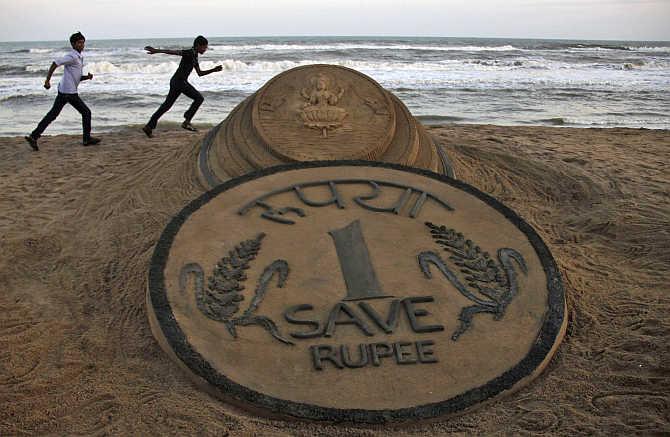
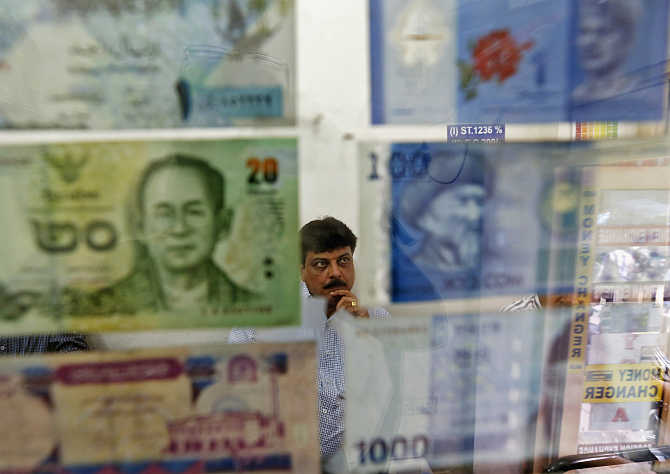
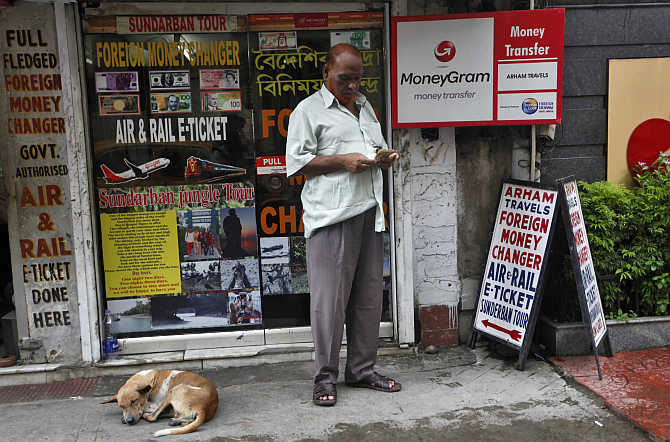
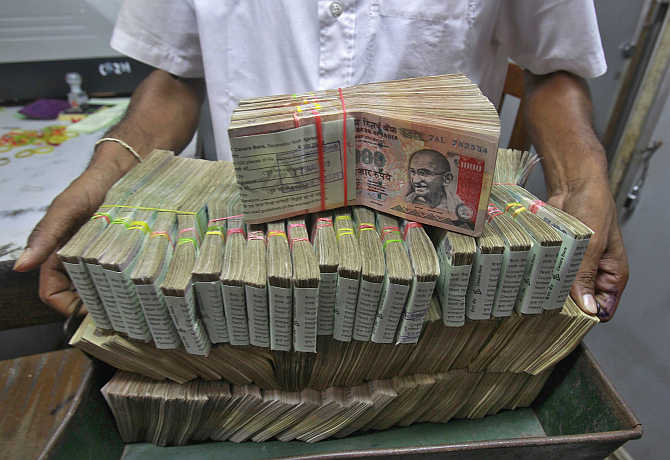
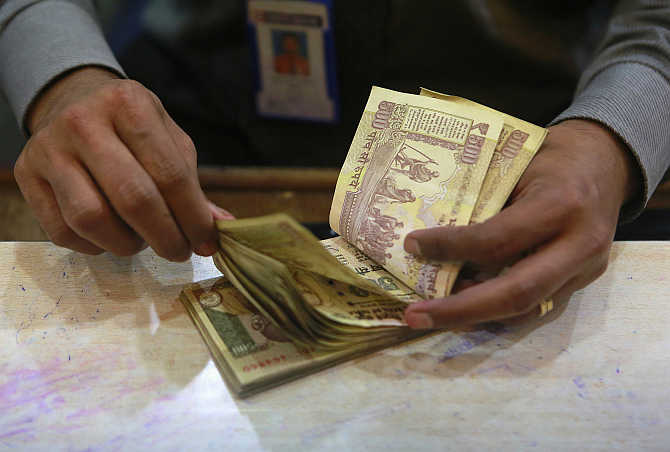

article